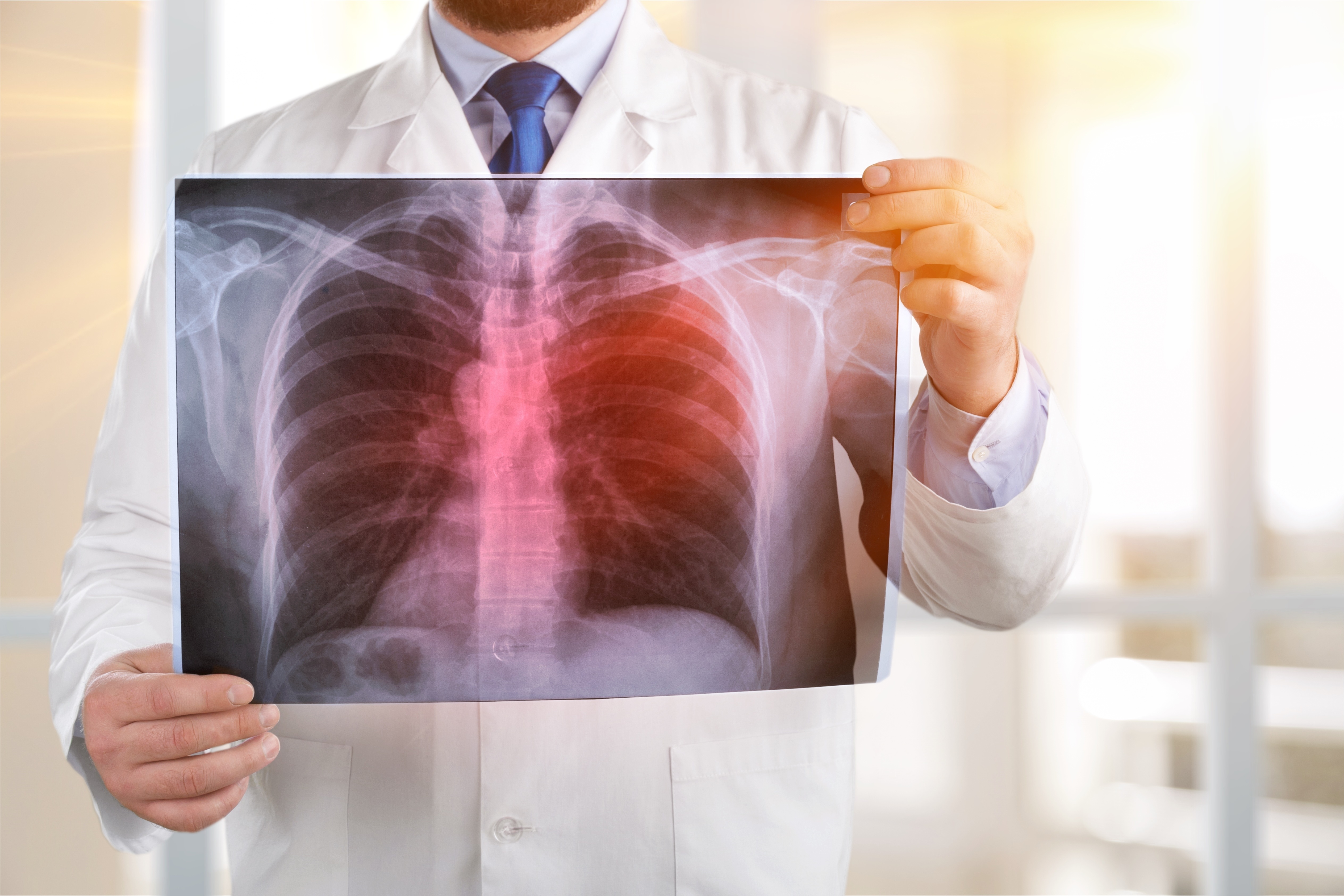Intraoperative Near-Infrared Imaging Can Identify Pulmonary Nodules
Background: Over 80,000 people undergo pulmonary resection for a lung nodule in the United States each year. Small nodules are frequently missed or difficult to find despite preoperative imaging. We hypothesized that near-infrared (NIR) imaging technology could be used to identify and locate lung nodules during surgery.
Methods: We enrolled 18 patients who were diagnosed with a pulmonary nodule that required resection. All patients had a fine-cut 1-mm computed tomography scan preoperatively. The patients were given systemic 5 mg/kg indocyanine green and then underwent an open thoracotomy 24 hours later. The NIR imaging was used to identify the primary nodule and search for additional nodules that were not found by visual inspection or manual palpation of the ipsilateral lung.
Results: Manual palpation and visual inspection identified all 18 primary pulmonary nodules and no additional lesions. Intraoperative NIR imaging detected 16 out of the 18 primary nodules. The NIR imaging also identified 5 additional subcentimeter nodules; 3 metastatic adenocarcinomas and 2 metastatic sarcomas. This technology could identify nodules as small as 0.2 cm and as deep as 1.3 cm from the pleural surface. This approach discovered 3 nodules that were in different lobes than the primary tumor. Nodule fluorescence was independent of size, metabolic activity, histology, tumor grade and vascularity.
Conclusions: This is the first-in-human demonstration of identifying pulmonary nodules during thoracic surgery with NIR imaging without a priori knowledge of their location or existence. The NIR imaging can detect pulmonary nodules during lung resections that are poorly visualized on computed tomography and difficult to discriminate on finger palpation.
Reference: Olugbenga T Okusanya , David Holt, Daniel Heitjan , Charuhas Deshpande, Ollin Venegas, Jack Jiang, Ryan Judy , Elizabeth DeJesus , Brian Madajewski , Kenny Oh, May Wang , Steven M Albelda, Shuming Nie , Sunil Singhal. (2014) Ann Thorac Surg Oct;98(4):1223-30.
|
Interested in learning more about thermal imaging? Request a demonstration with Digatherm and discover how veterinary thermography can help you find problem areas faster and easily monitor treatment progress. |

